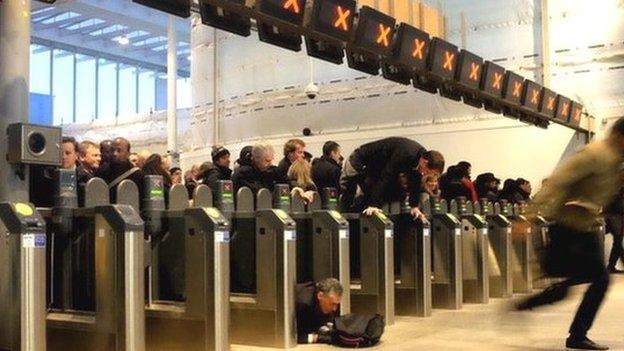London Bridge station reopens platforms in £1bn project
- Published
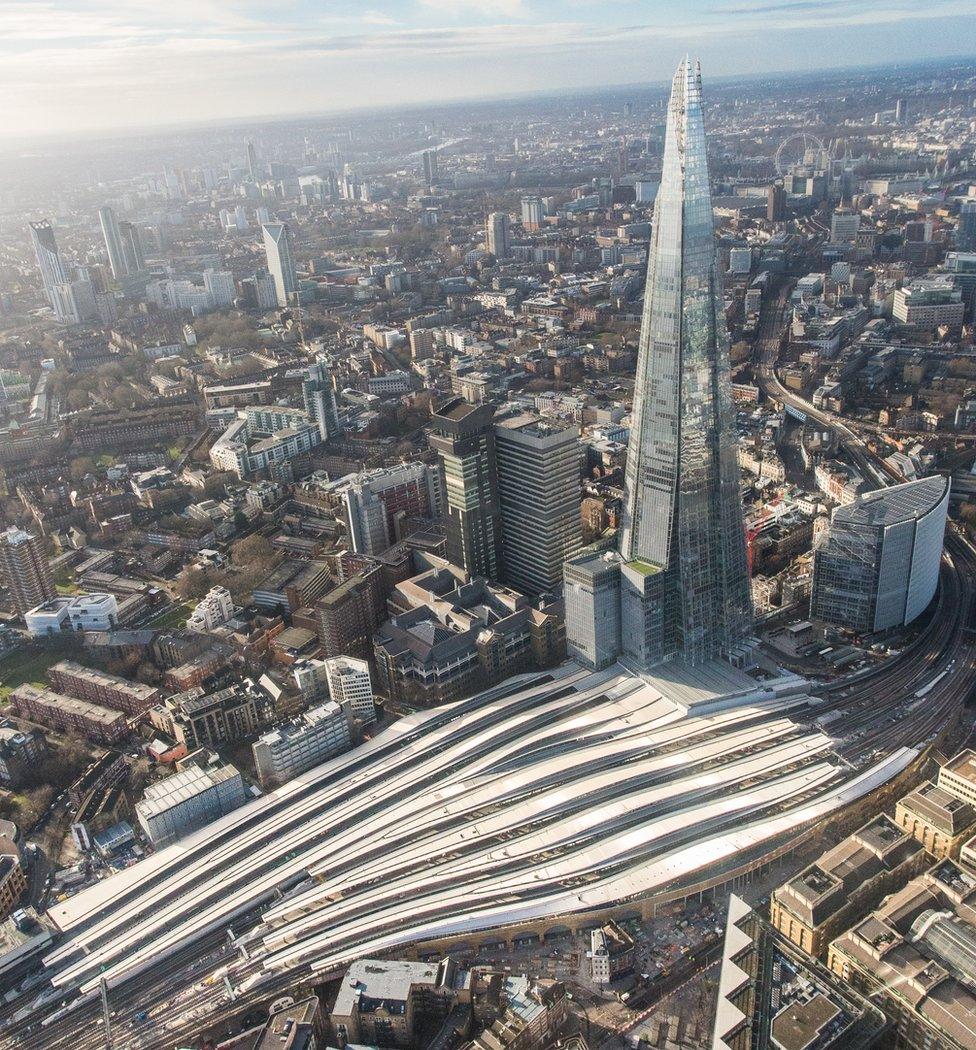
Engineers have remodelled tracks through and around the station to allow more trains through the capital and reduce delays
One of Britain's busiest railways stations has almost doubled its passenger capacity with the reopening of five platforms.
London Bridge can now serve 96 million people a year, up from about 50 million.
The works form part of a £1bn redevelopment of the capital's oldest station, which opened in 1836.
Network Rail said the project, which was started in 2013, was a "shining example" of investment.
Unions have said "greedy" private companies will make money out of the station, which it says has suffered "life-threatening chaos" due to overcrowding at rush hour.
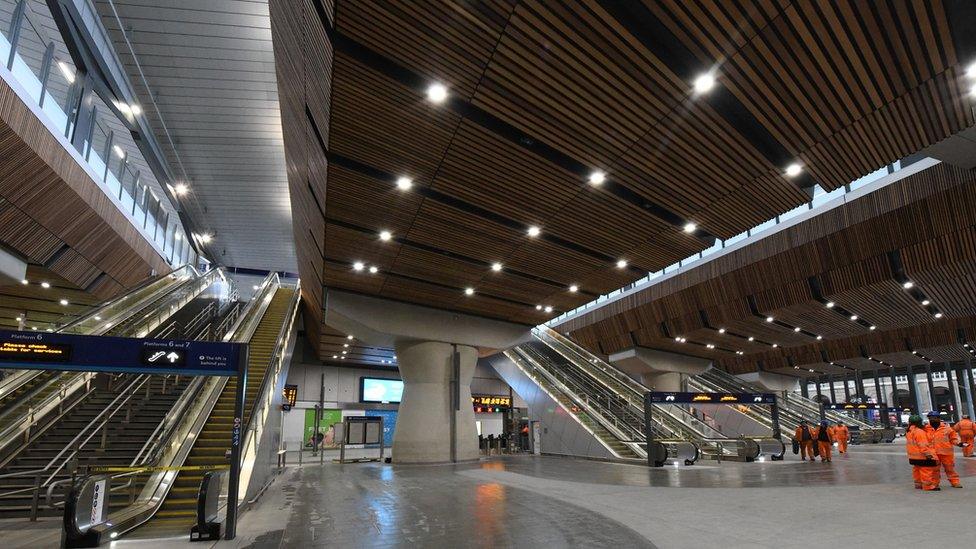
The opening of the new concourse means all 15 platforms are accessible for the first time since 2012
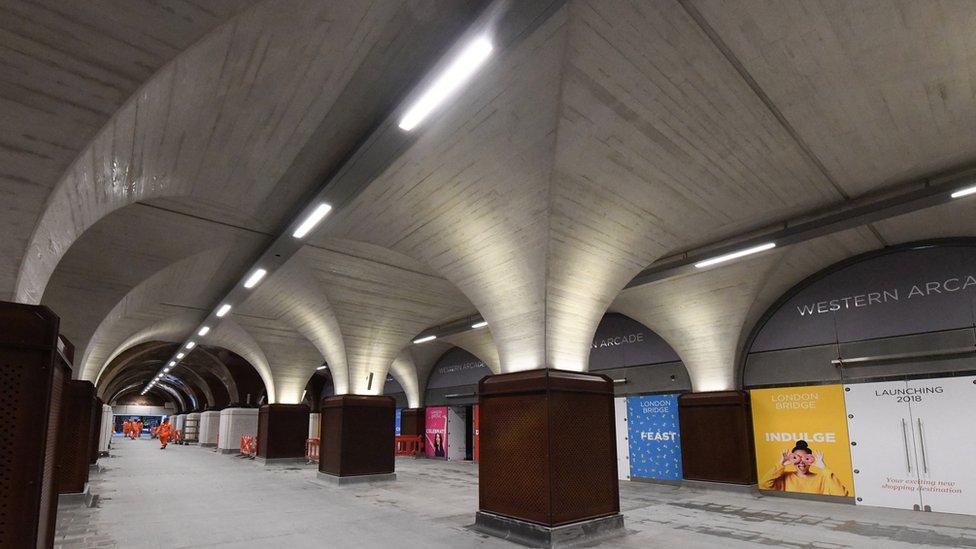
Network Rail hopes the new station will become a desirable shopping spot
For the first time since 2012, passengers had access to all 15 platforms earlier as the final section of a new concourse opened.
Engineers have remodelled tracks to help reduce delays and allow for more trains, and Thameslink services at the station are set to increase to 18 trains per hour from May.
Network Rail hopes the opening of 90 new retail units will also make the station an attractive place to spend time, "like London St Pancras".
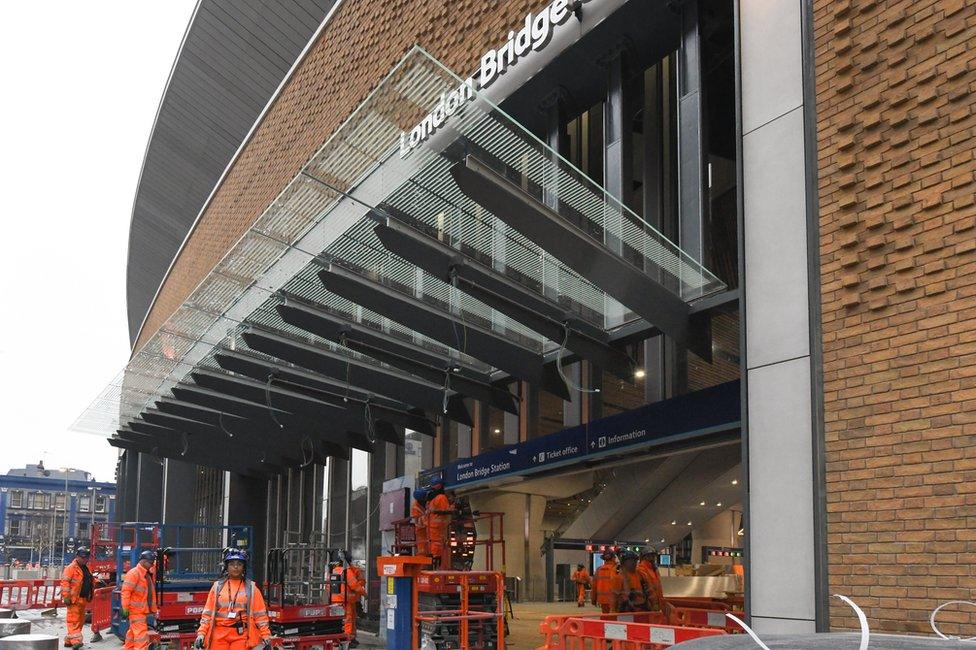
There are two new entrances for the station
An initial aim for 24 trains an hour to run through the station by the end of 2018 was recently pushed back to December 2019.
Mark Carne, chief executive of Network Rail, said the opening is "a shining example of the investment we are making in the railway".
The Rail, Maritime and Transport union said private companies will make money out of the taxpayer-funded project.
Its general secretary Mick Cash added: "The financial beneficiaries will be the greedy private train companies who jack up fares and max out profits and leave the passenger holding the bill for investment.
"It's a racket and reinforces our case for public ownership of the whole railway."
- Published2 January 2018
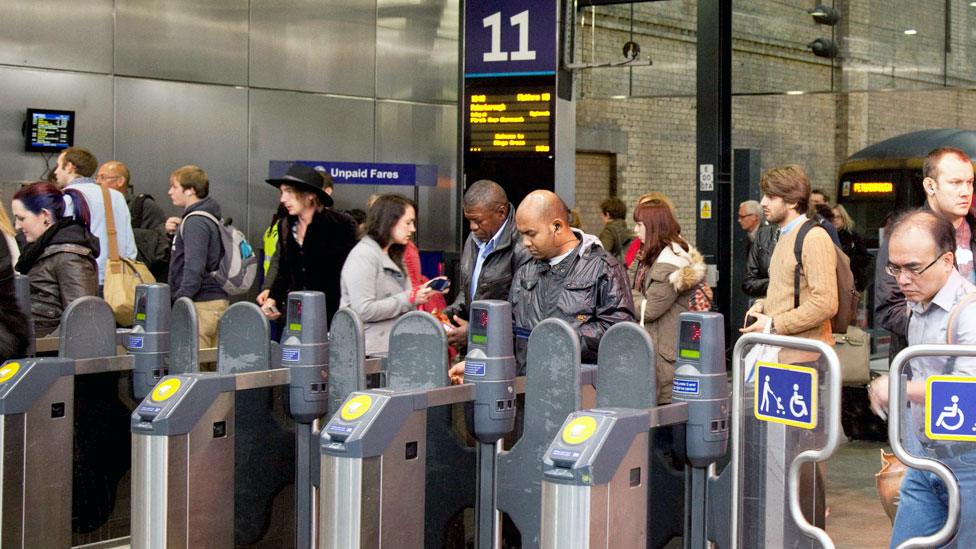
- Published23 August 2016
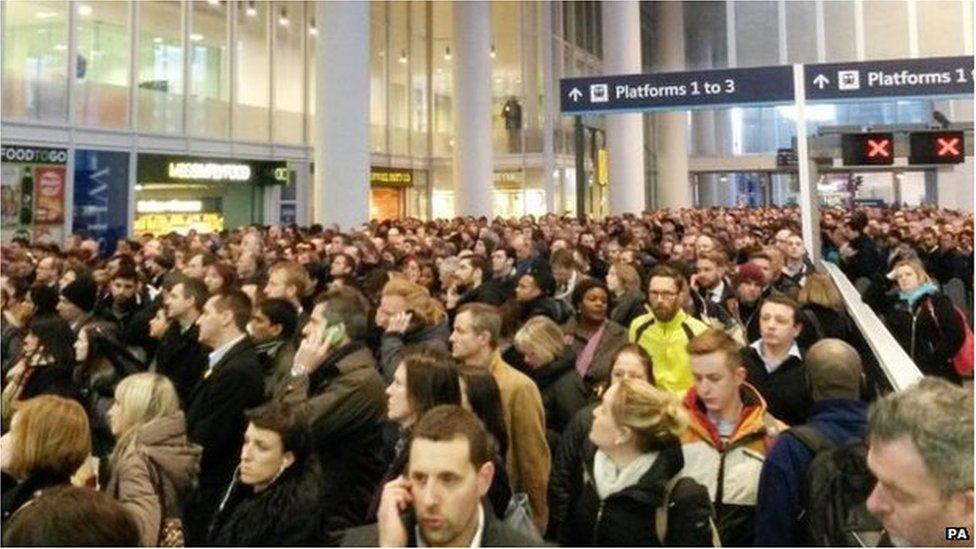
- Published4 March 2015
